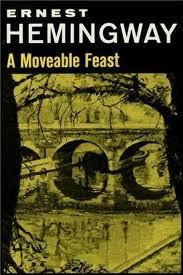Reading and Re-reading
For many years, the vast majority of my reading material was composed of books, poems, and articles that I had never read. Only a very few books ever seemed to me to merit re-reading. Besides, I felt always under the pressure of getting to the works that I had not yet managed to read: an impossibly large quantity then as now.
In the last few years, however, my attitude towards reading has changed. Perhaps it is because, with age, I discover that books I thought I knew well are no longer as familiar as they once were. I need, therefore, to re-acquaint myself with them. Perhaps it is because, as a full-time academic, I now have more time to read--at least in the summer months. I have also learned that, as with writing, the "real" or truly effective reading (or writing) seems to come with re-reading (or re-writing). These days, I often return to books that I had once considered taking to a used book shop to sell or trade--thinking that I was finally "finished" with them.
Ernest Hemingway's A Moveable Feast is a book that I have never considered parting with; it is a book I have dipped into repeatedly over the years; it is a book I will always cherish. Like Thoreau's Walden, it is a book about reading and writing and living the reading and writing life.
Hemingway wrote Feast at the end of his life--in a period that could have been the beginning of a new phase of his reading and writing life had he not chosen, instead, to end it. It is simple, direct, and honest--or at least the author managed to write in such a way as to convince the reader of his candor. Reading the book, one feels as though the author has taken him or her into his confidence: he is sharing with you the memories of his most immediate impressions of his life in Paris as he had lived it decades before--when he was poor, newly married, and unknown.
When I first read the book, in my late teens or early twenties, I found that the intimacy of Hemingway's tone often made me feel odd or uncomfortable. What he really thought of Gertrude Stein or of her relationship to other writers and artists, of her relationship to Alice B. Toklas, or Hemingway's relationship to other writers or to his wife, often embarrassed me. "This is really none of my business" I would think--and then, fitfully, close the book and set it aside, only to pick it up again and, like a voyeur at a peep-hole, eagerly read on. Re-reading the book now for the umpteenth time, I still feel an occasional twinge as if over-hearing gossip, but I no longer allow that twinge of conscience to interrupt my reading. Time gives us calluses in places we probably ought not to have them, but once we have them, we have them. Some we ought to tear open afresh. This one, I don't regret leaving intact.
There are seasons for feasting as well as for fasting: my instinct that the two are intimately related has always been a good one. But I should never have allowed the one to interfere with my experience or enjoyment of the other. Each has its appointed place in the liturgical calendar. As Pater and Joyce understood--and as Hemingway himself was, perhaps, beginning to make explicit--sense and spirit are dialectically related. If allowed to shift out of balance, only mischief and misery can follow.



0 Comments:
Post a Comment
<< Home